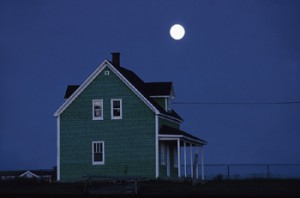Podcast: Play in new window
BOB HIRSHON (host):
Lunar insomnia. I’m Bob Hirshon and this is Science Update.

Even in a windowless room, the full moon seems to affect people’s sleep. This according to researchers at the University of Basel in Switzerland, writing in the journal Current Biology. During a full moon, 33 volunteers in the laboratory took an average of 5 minutes longer to fall asleep, and slept for 20 minutes less. In addition, their deep sleep brain activity was reduced by 30 percent. The finding means that humans, like many other animals, have a circalunar clock in the brain. The researchers are now interested in finding out where it’s located and how it works.
In other news, University of Arizona scientists have found that certain frequencies of ultrasound applied to the skull can improve mood. The work is aimed at finding a safe treatment for depression and chronic pain. I’m Bob Hirshon, for AAAS, the science society.
